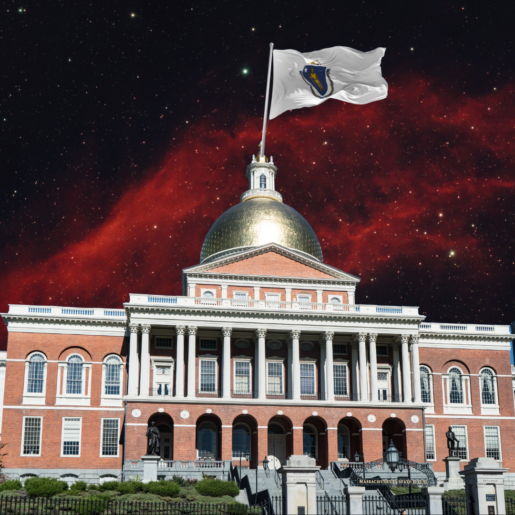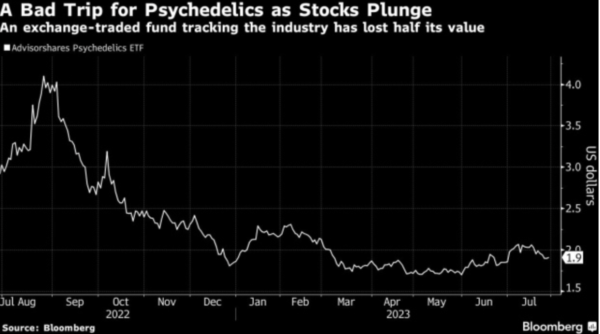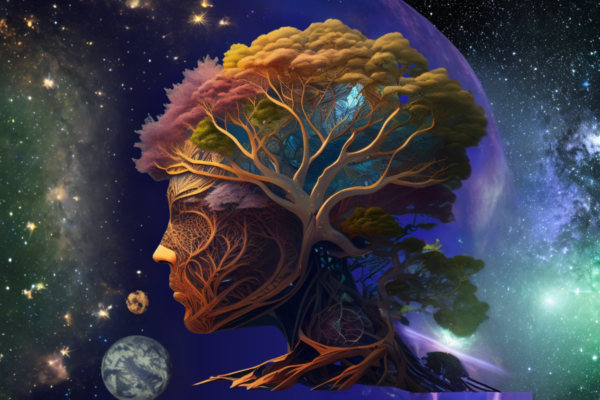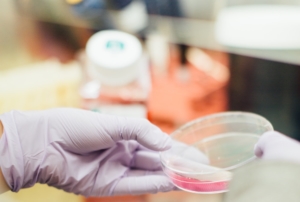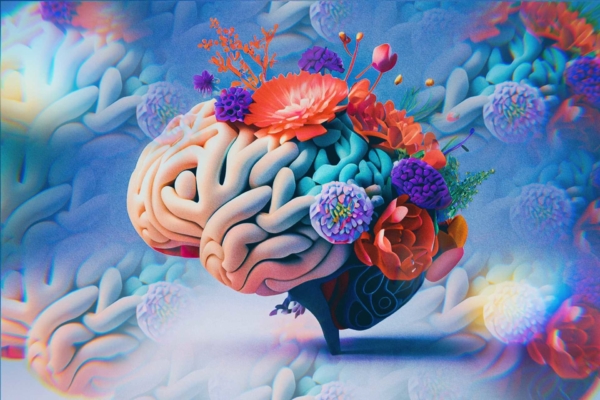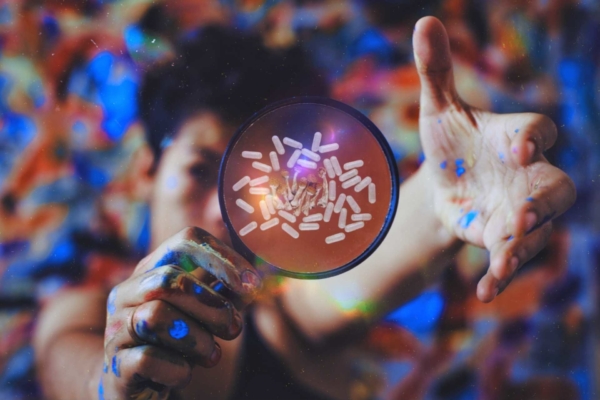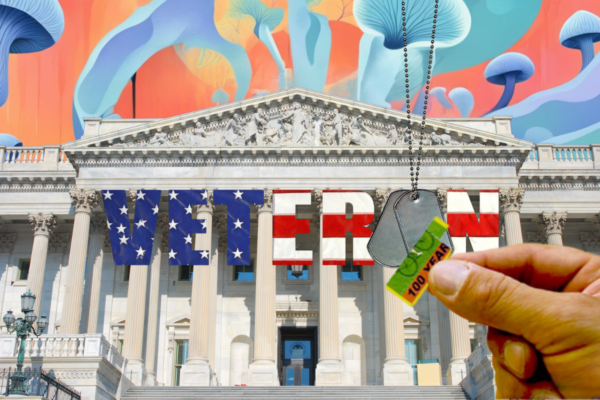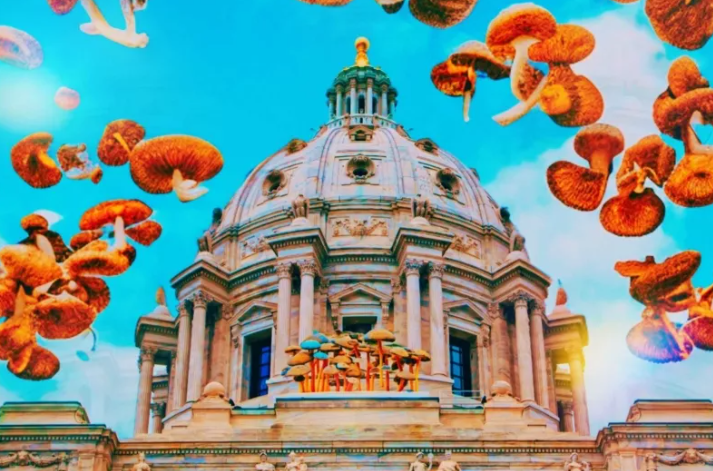
Massachusetts Campaign Files for Psychedelics Legalization in 2024 Ballot: A Major Policy Reform Step
Activists in Massachusetts have submitted two initiatives aiming to legalize the possession of certain psychedelics, such as psilocybin and ayahuasca. These initiatives also propose the establishment of licensed facilities that would offer supervised services. If approved, these initiatives could be included on the state’s 2024 ballot, giving voters the opportunity to decide on these matters.
The proposed measures not only seek to regulate the medical use of psilocybin, the psychoactive compound in “magic mushrooms”, but also to establish therapeutic psilocybin services for adults. Notably, the initiatives include provisions for the decriminalization of a wide range of entheogenic plants and fungi, and even permit the cultivation of mushrooms at home for personal use. This progressive move is underpinned by a growing body of evidence supporting the potential therapeutic benefits of psychedelics, which could revolutionize mental health treatment.
Here are some key details of the Natural Psychedelic Substances Act:
- Individuals aged 21 and above would be legally permitted to possess and share specific quantities of psychedelics.
- The covered psychedelics and their corresponding possession limits are as follows: DMT (one gram), non-peyote mescaline (18 grams), ibogaine (30 grams), psilocybin (one gram), and psilocin (one gram). It is important to note that these weight limits do not include any material to which the active substances may be attached or be a part of.
- Possession of quantities up to double the limit would incur a $100 civil fine, while amounts exceeding that threshold would still be considered criminal.
- To ensure effective implementation of the law and proper licensing of service centers and facilitators, a commission dedicated to natural psychedelic substances would be established. This commission would oversee the entire process.
- The establishment of a Natural Psychedelic Substances Advisory Board would involve thorough analysis and recommendations to the commission on various aspects including public health, regulations, facilitator training, equitable access, preservation of traditional practices, and potential updates to the list of legal substances.
- Psychedelics obtained from licensed facilities would be subject to a 15 percent excise tax, while localities would have the option to levy an additional two percent tax if they permit the operation of such centers within their jurisdiction. The generated revenue would be allocated towards ensuring effective regulation of the program.
- There are no provisions for expunging past convictions related to activities that would subsequently be legalized.
- Local governments have the authority to establish regulations concerning the time, location, and manner of service centers, but they do not possess the power to completely prohibit their operation within their jurisdiction.
- In jurisdictions where home cultivation is allowed, adults would have the opportunity to cultivate psychedelics within a designated space of up to 12X12 ft. This provision would come with civil legal protections encompassing professional licensure, child custody, and public benefits for individuals engaging in legalized psychedelic activities.
-
The proposed law would become effective on December 15, 2024, with the requirement of establishing both a commission and an advisory board by March 1, 2025. These measures aim to enhance the writing quality, optimize word choice, improve structure, readability, and eloquence, while preserving the original meaning.
As the campaign’s director, Michael Oliver, stated “We’re trying to make this as broad and inclusive as possible.” The initiatives reflect a broader shift in drug policy reform, transitioning from criminalization to a health-centered approach. If successful, Massachusetts could set a precedent for other states, potentially sparking nationwide policy reform.
Psychedelic Experiences Mirror Near-Death Phenomena, Unlocking New Avenues for Consciousness Research
The study conducted by Imperial College London reveals intriguing parallels between psychedelic experiences and near-death experiences (NDEs). The research, published in the Journal of Psychopharmacology, used a data set of 625 individuals who had taken either LSD or psilocybin. Participants completed a questionnaire designed to probe the nature of their psychedelic experience, with a particular focus on phenomena associated with NDEs.
The results showed a significant overlap between the two experiences, involving a sense of transcending the self or body and entering an alternative realm of consciousness.
The study’s lead author, Dr. Robin Carhart-Harris, Head of the Centre for Psychedelic Research at Imperial, said, “These findings are important as they remind us that NDEs occur because of significant changes in the way the brain is working, not because of something beyond the brain. Psychedelics can provide a scientific and measurable way to induce and study the features of NDEs that provide insights into consciousness.”
The researchers also observed subtle yet significant distinctions between DMT and NDE responses. While DMT experiences were more likely to evoke a sense of “entering an unearthly realm,” genuine NDEs elicited stronger sensations of “reaching a point of no return.” The team suggests that these disparities may be attributed to contextual factors, such as the screening process for volunteers, pre-existing psychological preparation, and the presence of monitoring in a controlled environment.
“Emotions and context are particularly important in near-death experiences and with psychedelic substances,” explains PhD candidate Chris Timmermann, a member of the Psychedelic Research Group at Imperial and first author of the study. “While there may be some overlap between NDE and DMT-induced experiences, the contexts in which they occur are very different.”
“DMT is a potent psychedelic and it may be that it is able to alter brain activity in a similar fashion as when NDEs occur. We hope to conduct further studies to measure the changes in brain activity that occur when people have taken the compound. This, together with other work, will help us to explore not only the effects on the brain, but whether they might possibly be of medicinal benefit in future.”
This research underscores the potential of psychedelics as powerful tools for understanding the human mind and consciousness and their therapeutic potential in mental health treatment.
Psychedelics Industry Faces Downturn as Regulatory Hurdles Persist, Predicts Shakeout Stage
Despite the initial hype, the psychedelics industry is facing a downturn as companies struggle to secure regulatory approval for drugs like LSD, psilocybin, and ayahuasca. While cultural interest and legal changes have fueled some growth, most companies are still trying to get these substances approved through clinical trials. However, no major breakthroughs have been achieved yet, leading to a significant drop in stock values.
Cody Shandraw, a managing partner at Ambria Capital, predicts that about half of the companies that went public since 2019 are either selling intellectual property or shutting down. “When you look at any emerging industry, there’s a life cycle. Now we’re in the shakeout stage,” he told Bloomberg. The industry is pinning its hopes on late 2024, when midstage results from clinical trials are expected, and traditional pharmaceutical companies might start making purchases.
New Study Reveals Psychedelics’ Impact on Default Mode Network, Enhancing Social Cognition and Unity
A recent study published in Neuroscience & Behavioral Review explores the impact of psychedelics on the Default Mode Network (DMN), Theory of Mind (ToM), and social cognition and how these brain regions overlap.
The DMN, a network of interacting brain regions, is associated with self-referential thoughts and mind wandering. The Theory of Mind, our ability to understand and interpret others’ mental states, is also influenced by psychedelics. The study suggests that psychedelics may enhance ToM, leading to increased empathy and understanding of others.
One of the most interesting findings in the study is that psychedelics activate certain certain zones of the DMN, contrary to previous research.
“The DMN is especially active, research shows, when one engages in introspective activities such as daydreaming, contemplating the past or the future, or thinking about the perspective of another person. Unfettered daydreaming can often lead to creativity. The default mode network is also active when a person is awake. However, in a resting state, when a person is not engaged in any demanding, externally oriented mental task, the mind shifts into ‘default,” the study revealed.
Prior to this study, there was no research investigating how these two networks overlap and work together, nor was there any research on how these regions interact under the influence of psychedelics.
In order to delve into the enigma surrounding these networks and the impact of psychedelics on their neural connection, the team of scientists embarked on a comprehensive meta-analysis of 88 studies, involving a total of 2122 participants.
The study found that the cingulate cortex, more specifically the BA23 and BA31 regions, plays an essential role in how these networks overlap and that psychedelics affect how these areas interact with each other. According to the researchers, psychedelics’ impact on the Theory of Mind and social cognition could unearth some of the mystery behind these substances’ therapeutic potential and how these networks relate to our sense of self.
Most importantly, the study found that the convergence of social cognition, Theory of Mind, DMN, and psychedelics occurs primarily in two key brain regions: the Anterior Cingulate Cortex (ACC) linked to self-perspective and the Posterior Cingulate Cortex (PCC) associated with autobiographical memory. The activation of these areas during psychedelic experiences and introspective thinking suggests that self-perspective and autobiographical memories serve as the underlying mechanisms connecting these neural networks.
These findings support the idea that humans have an inherent inclination towards social thinking (social cognition) as a default mode. This predisposition may stem from the close relationship between our self-perception and autobiographical memories.
The researchers notes that psychedelics affect other brain regions that were not investigated in this study, and these areas which play a role in our self-awareness, decision-making and planning may have an indirect effect on our self-perception and social thinking.
Read also: New Study Provides Insights into Psychedelics’ Impact on the DMN, ToM and Social Cognition
Senate Committee Highlights Schedule I Restrictions as Barrier to Marijuana and Psychedelics Research
The Senate Appropriations Committee has highlighted that federal law, specifically Schedule I restrictions, obstructs research into marijuana and psychedelics. The committee’s report emphasizes the need for scientific research into the therapeutic benefits and risks of substances like marijuana and psilocybin. It also calls for a review of the classification of these substances under Schedule I, which categorizes them as having no medical use and high potential for abuse.
The report states, “The Committee is concerned that restrictions associated with Schedule 1 of the Controlled Substance Act effectively limit the amount and type of research that can be conducted on certain Schedule 1 drugs, especially marijuana or its component chemicals and certain synthetic drugs.” The committee urges agencies to collaborate on research and to consider reevaluating the scheduling of these substances.
In the psychedelics provisions of the LaborH bill and report, the committee is strongly advocating for increased research on psychedelics. They recommend that the National Institutes of Health (NIH) and the Food and Drug Administration (FDA) collaborate to establish public-private partnerships that will facilitate this research. This collaborative effort will not only enhance the quality of the research but also ensure its accessibility and effectiveness.
“The Committee recognizes the increased interest and need to study psychedelics, including MDMA, ketamine, and psilocybin, and their potential therapeutic effects. The Committee encourages NIH to expand its current research agenda across its Institutes and Centers, potentially by forming a cross-Institute research group, and to encourage psychedelic research at the NIH Clinical Center. The Committee also encourages NIH to work with FDA in developing and supporting public-private collaborations to advance all forms of psychedelic research for therapeutic purposes.”
